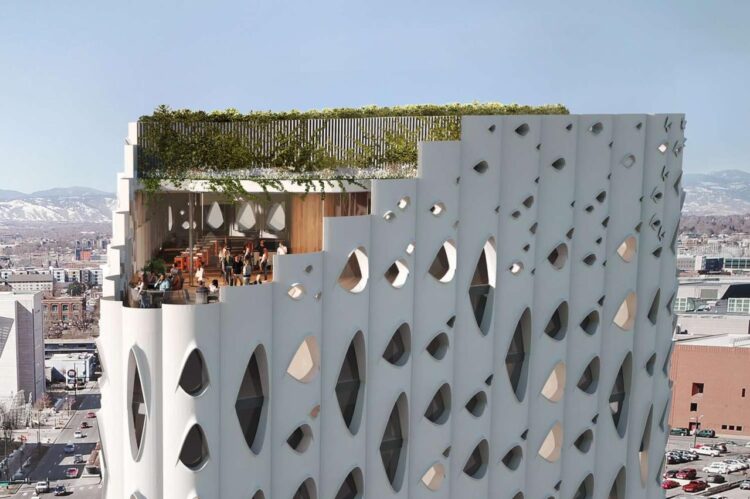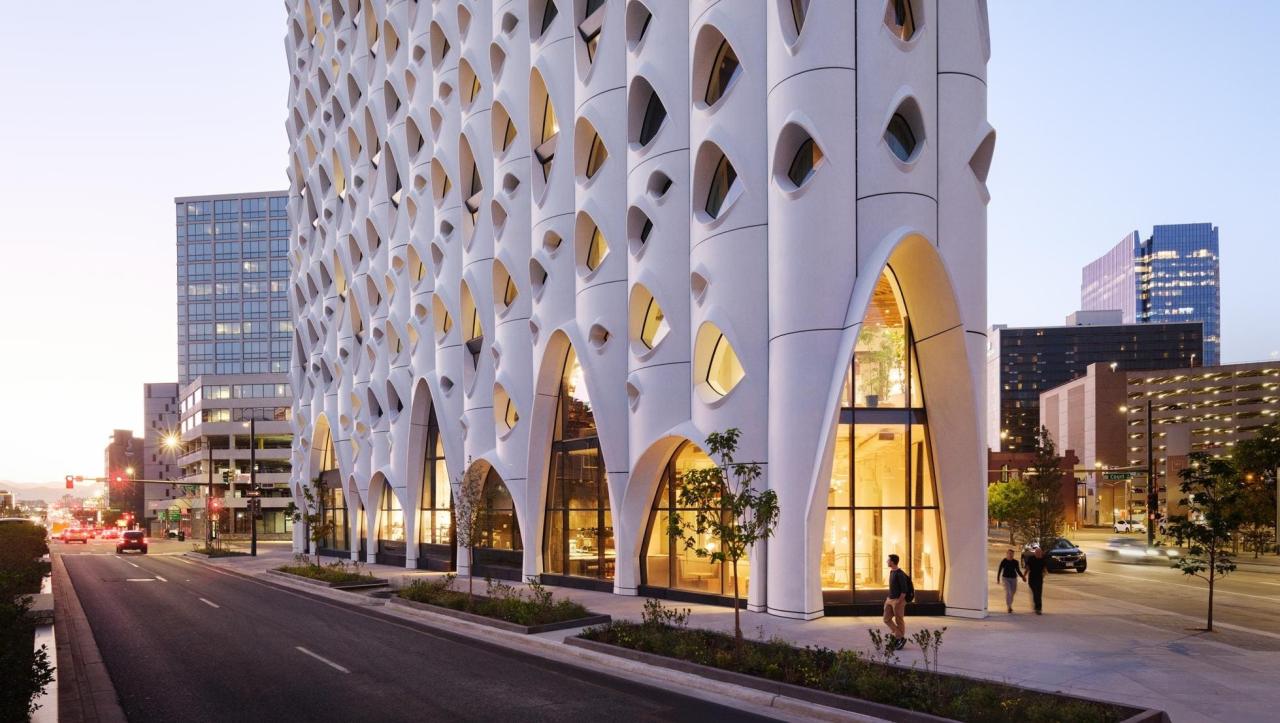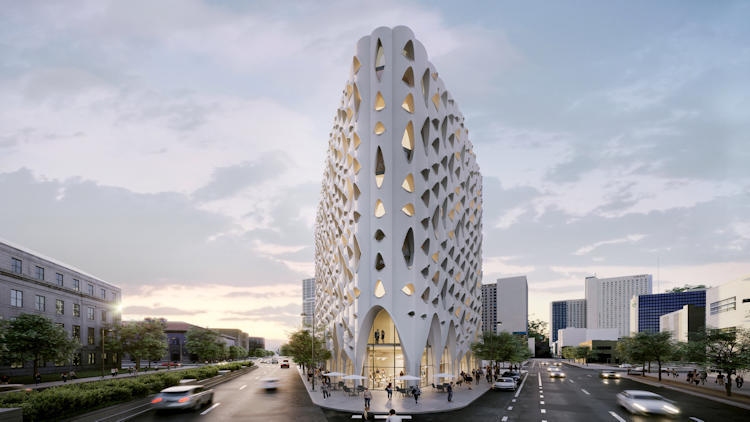In the heart of downtown Denver, the Populus Hotel stands as a beacon of sustainable innovation, marking a significant milestone as America’s first carbon-positive hotel. This 13-story, 265-room establishment not only redefines luxury hospitality but also sets a new standard for environmental stewardship in the industry.
Architectural Marvel Inspired by Nature
Designed by the renowned Studio Gang, Populus draws inspiration from Colorado’s native aspen trees, specifically the Populus tremuloides. The hotel’s distinctive façade features eye-shaped windows with hooded lids, mimicking the unique patterns found on aspen bark. These architectural elements are not merely aesthetic; they serve functional purposes by reducing solar gain and channeling rainwater to clean the building’s exterior.
Inside, the hotel’s design continues to reflect its natural inspiration. The lobby showcases a sculptural tapestry made from reishi, an eco-friendly textile derived from mycelium, the root structure of fungi. Reclaimed wood from Wyoming snow fencing and beetle-kill pine are used throughout the hotel, emphasizing a commitment to sustainable materials.
Commitment to Carbon Positivity
Populus goes beyond carbon neutrality by actively contributing to environmental restoration. The hotel’s carbon-positive status is achieved through a combination of sustainable practices and offset initiatives:
A. Sustainable Construction: Utilizing low-carbon concrete and recycled materials, the hotel’s construction significantly reduces embodied carbon emissions.
B. Renewable Energy: Populus operates entirely on renewable electricity, sourced from Colorado wind farms through Renewable Energy Certificates.
C. Tree Planting Initiatives: Through partnerships with organizations like the National Forest Foundation, Populus has planted over 70,000 trees in Gunnison County, Colorado. Additionally, the “One Night, One Tree” program ensures a tree is planted for every guest’s stay, aiming to plant 55,000 trees in 2025.
D. Carbon Credits: The hotel collaborates with Grassroots Carbon, OneTreePlanted, and Terrapass to acquire certified forest and soil carbon credits, supporting projects that enhance biodiversity and ecosystem resilience.
Innovative Waste Management
Populus is a pioneer in waste reduction, particularly in its dining operations:
A. On-Site Biodigester: The hotel employs BioGreen360’s “Food Cycling” technology, allowing it to compost 100% of its food waste. This compost is then distributed to local farms, promoting a circular economy.
B. Zero Waste Dining: Restaurants Pasque and Stellar Jay emphasize whole-product utilization, transforming food scraps into sauces and other dishes, minimizing waste.
Biophilic Design and Guest Experience
Populus integrates nature into every aspect of the guest experience:
A. Natural Soundscapes: Elevators play recordings of bird songs from Rocky Mountain National Park, creating a serene atmosphere.
B. Eco-Friendly Amenities: Guest rooms feature biodegradable carpets, MiiR reusable water bottles, and locally sourced snacks, reducing single-use plastics.
C. Rooftop Garden: Designed by Superbloom, the rooftop hosts a four-season garden with native plants, supporting pollinators and enhancing urban biodiversity.
Culinary Excellence with Sustainability
Under the guidance of Executive Chef Ian Wortham, Populus’s dining venues prioritize sustainability:
A. Local Sourcing: Menus at Pasque and Stellar Jay feature seasonal produce and proteins from regenerative farms and ranches.
B. Innovative Cuisine: The restaurants utilize whole ingredients, ensuring minimal waste and maximum flavor.
Setting a New Standard in Hospitality
Populus serves as a model for future developments, demonstrating that luxury and sustainability can coexist:
A. LEED Gold Certification: The hotel meets stringent environmental standards set by the U.S. Green Building Council.
B. Urban Integration: Located in downtown Denver, Populus contributes to the city’s revitalization while promoting green infrastructure.
C. Community Engagement: By sourcing locally and supporting regional agriculture, the hotel fosters strong community ties.
Conclusion
Populus Hotel exemplifies how the hospitality industry can lead in environmental responsibility. Through innovative design, sustainable practices, and community engagement, it not only provides guests with a luxurious experience but also contributes positively to the planet. As the first carbon-positive hotel in the U.S., Populus sets a precedent for future developments, proving that sustainability and luxury are not mutually exclusive but can enhance each other.









